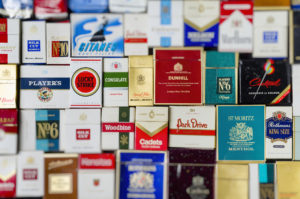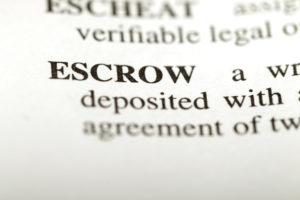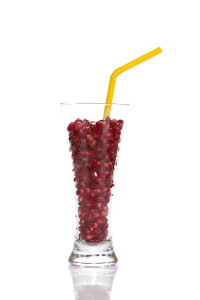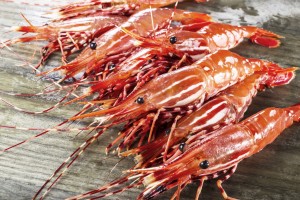** A Return to the Limits of In Re Tobacco II? Courts Find That Not Every Advertisement is Part of a “Long-Term Campaign” **
By: Brent E. Johnson

We normally don’t blog about unpublished decisions because . . . lack of precedential value and all that . . . . and that may turn out to be the case with the recent California Court of Appeal’s opinion in Santamarina v. Sears Roebuck & Co., B246705, 2016 WL 1714226, at *1 (Cal. Ct. App. Apr. 26, 2016) and the Ninth Circuit’s memorandum decision in Haskins v. Symantec Corp., No. 14-16141 (9th Cir. June 20, 2016). But these decisions are simply too good for us to pass up the opportunity to post about them – particularly for those who represent clients being sued under California’s CLRA or UCL based on foggy claims of consumer fraud. Invariably, a defendant bringing a Rule 9(b) motion to dismiss or opposing class certification based on the putative class representative’s inability to identify the false advertisements she relied on will be met with the plaintiff’s invocation of the “long-term advertising campaign” language in In re Tobacco II Cases (Tobacco II), 46 Cal. 4th 298 (2009) – the salve that heals all reliance deficiencies.
Of course, Tobacco II dealt with a class representatives’ allegations of “a decades-long campaign of deceptive advertising and misleading statements about the addictive nature of nicotine and the relationship between tobacco use and disease.” 46 Cal. 4th at 306 (emphasis added.) Which is no exaggeration, Joe Camel was R.J. Reynolds’ pitchman for a decade — although it seemed much longer — and the Marlboro Man rode shotgun for Philip Morris for almost half a century. Based on that allegation, the California Supreme Court held, “[W]here . . . a plaintiff alleges exposure to a long-term advertising campaign, the plaintiff is not required to plead with an unrealistic degree of specificity that the plaintiff relied on particular advertisements or statements.” Id. at 328. Despite the limited nature of this ruling, plaintiffs who have no idea what advertisements they may have seen frequently claim that the defendant engaged in a “long-term [false] advertising campaign.” Id.
Courts have shown varying degrees of willingness to go along with this class representative claim, particularly at the pleading and class certification stages. Those that do, often quote this language from Tobacco II: “The substantive right extended to the public by the UCL is the right to protection from fraud, deceit and unlawful conduct, and the focus of the statute is on the defendant’s conduct.” 46 Cal 4th at 324. Courts accepting the “long-term advertising campaign” excuse for the plaintiff’s inability to identify the advertisements he relied on tend to read Tobacco II as a judicial declaration that the UCL and CLRA are primarily punish-the-defendant statutes and only secondarily consumer protection laws.
But in Santamarina – a case involving “Made in the USA” advertising by Sears for its Craftsman® tools – the California Court of Appeal scaled back the expansive readings of Tobacco II by other California courts. In Santamarina, the putative class representatives were able to identify the specific advertising and labeling on which they relied so standing was not at issue as it was in Tobacco II. In addition, falsity and materiality were not in dispute given California law on “Made in the USA” claims. Moreover, discovery in the case apparently showed that Sears understood that “Made in the USA” was a valuable sales claim and internal marketing studies demonstrated that a significant percentage of consumers believed Craftsman® tools were made in the United States.
Despite the above, the Court of Appeal concluded that plaintiffs could not establish commonality or that the proposed class was ascertainable. Notably, the plaintiffs defined the class as “All persons who purchased, in the State of California from January 6, 2001 through the present, any Craftsman branded tool or product where any unit or part thereof was entirely or substantially made, manufactured, or produced outside of the United States.” The Court of Appeal agreed with the superior court that this definition doomed the proposed class under commonality and ascertainability requirements because the proposed class included consumers who never saw any Craftsman® “Made in the USA” advertising or labeling. The Court of Appeal responded to plaintiffs’ incantation of Tobacco II by holding, “Given that the time period at issue was several years, and only some Sears advertising and marketing could potentially be found to be false or misleading, substantial evidence supported the trial court’s finding that the advertising at issue here is not equivalent to the decades-long campaign in Tobacco II.” Particularly important are these words: “In contrast to the evidence here, Tobacco II ‘involved identical misrepresentations and/or nondisclosures by the defendants made to the entire class.’” Santamarina, 2016 WL 1714226, at *10 (citing Kaldenbach v. Mutual of Omaha Life Ins. Co. (2009) 178 Cal.App.4th 830, 849.
For being designated as an unpublished opinion, the California Court of Appeal’s decision in Santamarina is unusually expansive in its analysis – covering 34 pages. In contrast, Haskins v. Symantec is the soul of wit. In a mere two paragraphs, the Ninth Circuit upheld the district court’s dismissal of a putative class action complaint alleging that Symantec failed to warn consumers that hackers had compromised the 2006 version of its ubiquitous Norton antivirus software. The plaintiff claimed, among other things, that she relied on Symantec’s advertising that its software was secure (when it allegedly wasn’t) in buying it – without identifying the specific advertising. The Ninth Circuit affirmed the district court’s dismissal under Rule 9(b) “[b]ecause Haskins’s complaint did not allege that she read and relied on a specific misrepresentation by Symantec.” In response to the plaintiff’s predictable invocation of Tobacco II, the Ninth Circuit found that the plaintiff “failed to establish that the Tobacco II standard is applicable to her pleadings because the misrepresentations at issue here were not part of an extensive and long-term advertising campaign like the decades-long campaign engaging in saturation advertising targeting adolescents in Tobacco II.”
Two cases do not a trend make — especially when California law is involved. But it is encouraging to see courts – even in unpublished decisions – return Tobacco II to its stated limits rather than assuming that any and every advertisement is part of a long-term campaign.




 Two putative class action lawsuits have been filed over cellulose in
Two putative class action lawsuits have been filed over cellulose in 

